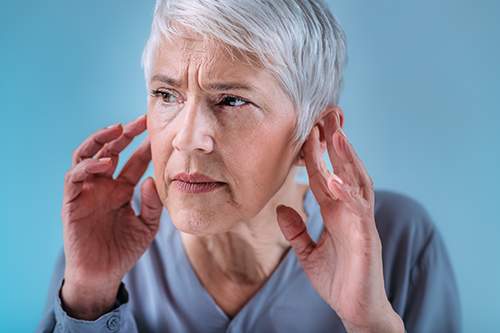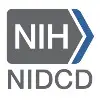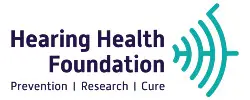Introduction
Life is replete with transformative journeys, and few are as profound as the voyage through pregnancy. Amid the anticipation and joy, pregnant women face a multitude of physiological changes, some of which impact the sense of hearing. For those living with Otosclerosis, a hearing condition that affects the bones of the middle ear, pregnancy can bring unique challenges and questions. This blog post seeks to explore the intersection of Otosclerosis and pregnancy, to better equip women and their caregivers with the knowledge they need during this transformative period.
In the following sections, we will delve into the relationship between Otosclerosis and pregnancy, discussing the scientific insights available, the role of hormones, and the management of symptoms. We will also attempt to dispel myths around pregnancy-associated Otosclerosis while addressing the implications of maternal Otosclerosis on both mother and child.
RCA OTC Hearing Aid Pair
Experience the world like never before with the RCA OTC Behind-the-Ear Hearing Aid. Our advanced digital technology ensures that every sound is crystal clear and vibrant, allowing you to fully immerse yourself in life’s experiences. Whether it’s the laughter of loved ones or the music that moves you, our hearing aid brings back the joy of every moment.
Say goodbye to the hassle of appointments and prescriptions. The RCA OTC Hearing Aid is designed to meet the needs of individuals without the need for a prescription. With its seamless setup and user-friendly design, you can effortlessly enhance your hearing abilities and stay connected to the world around you. Simply unpack, wear, and enjoy improved auditory perception instantly.
Experience optimal comfort and style with our discreet behind-the-ear design. The thin tube design allows you to wear glasses comfortably, so you can enjoy clear hearing while maintaining your personal sense of style. Plus, our rechargeable battery ensures long-lasting power, eliminating the inconvenience of constantly replacing small batteries. Elevate your hearing experience with the RCA OTC Hearing Aid and embrace the world with confidence.
Understanding the Relationship Between Otosclerosis and Pregnancy
The relationship between Otosclerosis and pregnancy has intrigued researchers for years. Studies have shown that symptoms of Otosclerosis often worsen during pregnancy, with some women reporting the onset of symptoms for the first time during this period (source). However, this does not mean that pregnancy causes Otosclerosis, rather that the hormonal changes during pregnancy may accelerate the progression of the disease in women who already have it.
Understanding this relationship is essential for anticipating and managing the course of Otosclerosis during pregnancy. Research on this topic can also open doors for potential hormonal therapies in treating this condition.
Exploring the Impact of Hormones on Otosclerosis During Pregnancy
The complex interplay of hormones during pregnancy seems to influence the course of Otosclerosis. Estrogen, a hormone that surges during pregnancy, has been linked with an increase in Otosclerosis symptoms (source). This hormone stimulates bone growth, potentially aggravating the bony overgrowth characteristic of Otosclerosis.
However, the picture is not entirely bleak. Post-delivery, the decrease in hormone levels might result in a stabilization or improvement of symptoms (source). Understanding these hormonal influences can help anticipate changes in hearing and guide symptom management during pregnancy.
Managing Otosclerosis Symptoms During Pregnancy
Management of Otosclerosis symptoms during pregnancy is a delicate balancing act. Non-surgical options such as the use of hearing aids might be the first line of management. However, hearing aids might not be sufficient for all, especially in cases of severe hearing loss.
In such scenarios, surgery might be considered. Stapedectomy, a surgical procedure used to treat Otosclerosis, has generally been deemed safe during pregnancy, although the decision to proceed with it should be made on a case-by-case basis considering the benefits and risks (source).
Discussing Otosclerosis management options with healthcare providers is key. It allows for an individualized approach, keeping in mind the severity of the symptoms, overall health status, and personal preferences of the pregnant woman.
Maternal Otosclerosis: Implications for Mother and Child
Living with Otosclerosis as a mother brings its unique set of challenges and concerns. Potential hearing loss may impact bonding experiences with the child, like hearing their first words. It’s crucial to remember that with the right guidance and support, these hurdles can be effectively navigated.
Equally important is understanding that Otosclerosis is not typically a condition passed down to the child. While there may be a genetic predisposition, other factors like environmental influences play a significant role (source). Knowing this can alleviate some concerns expecting mothers might have about the implications of their condition on their child.
QUIZ - TINNITUS AND ITS SYNONYMS
Exploring the Impact of Hormones on Otosclerosis During Pregnancy
As complex as Otosclerosis is, so is the intricate dance of hormones during pregnancy. It’s believed that estrogen and progesterone, two key hormones that surge during pregnancy, may affect Otosclerosis (source). However, the exact mechanism and the impact are not completely understood and still under active research.
While some studies indicate a possible worsening of symptoms during pregnancy, this isn’t a universal experience for all women with Otosclerosis. For some, their condition may remain stable throughout their pregnancy. These variations underline the complex interplay of hormones and how they can impact different individuals uniquely.
Understanding these hormonal influences can offer hope. It illuminates the potential for treatments targeting these hormonal pathways, offering another avenue to manage Otosclerosis during pregnancy. However, it’s important to remember that all treatment decisions should be personalized and made in consultation with healthcare providers.
Exploring Hearing Aid Integration in iOS
Understanding the Relationship Between Otosclerosis and Pregnancy
Otosclerosis and pregnancy share a complex, often puzzling relationship. Historically, it was thought that pregnancy could trigger or worsen Otosclerosis due to hormonal changes. However, current research offers a more nuanced understanding (source).
While pregnancy may exacerbate Otosclerosis symptoms for some women, this isn’t an absolute rule. The diverse experiences of women globally underscore the need for individualized care. A woman’s relationship with Otosclerosis during her pregnancy can depend on multiple factors, including her overall health, genetic predisposition, and possibly her hormonal profile.
As we strive for a clearer understanding of this relationship, it’s crucial for women with Otosclerosis to have open discussions with their healthcare providers. Knowledge empowers and allows for the best care strategies, making pregnancy a more enjoyable and less stressful journey.
Conclusion
The journey through pregnancy while managing Otosclerosis is an intimately personal one, different for every woman. We believe that understanding the complexities of this journey, from hormonal influences to symptom management, is the first step towards feeling more in control and empowered.
The relationships between Otosclerosis, hormones, and pregnancy are complex and multifaceted. Research is ongoing to better understand these connections. Yet, even amidst uncertainties, what is certain is the potential for women to successfully navigate their pregnancies with Otosclerosis.
Understanding is power. Knowing about the hormonal influences and the relationship between Otosclerosis and pregnancy can bring clarity and create a roadmap for symptom management. Recognizing that every woman’s experience is unique and individualized care is key can help bring a sense of control and confidence.
Through this journey, you’re not alone. Reach out, share your experiences, and learn from the stories of others. And above all, remember that with the right information and support, pregnancy with Otosclerosis can be a journey of joy and anticipation, looking forward to the beautiful journey of motherhood that lies ahead.

Harmonizing Life with Mixed Hearing Loss: A Global Perspective
Dive into the complexities of Mixed Hearing Loss with our comprehensive guide, exploring diagnosis, treatment options, and practical tips for daily management

Harmonizing Silence and Sound: Mastering Mixed Hearing Loss
Dive into the complexities of Mixed Hearing Loss with our comprehensive guide, exploring diagnosis, treatment options, and practical tips for daily management.






